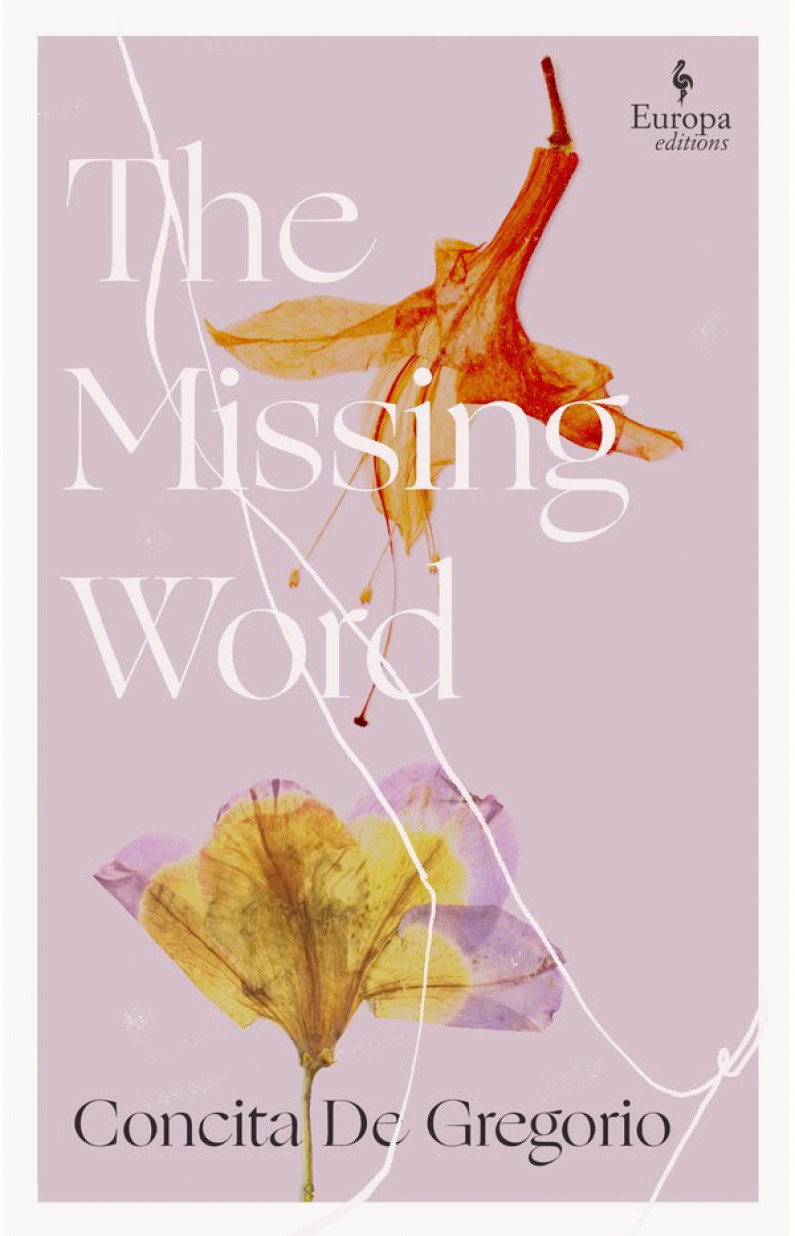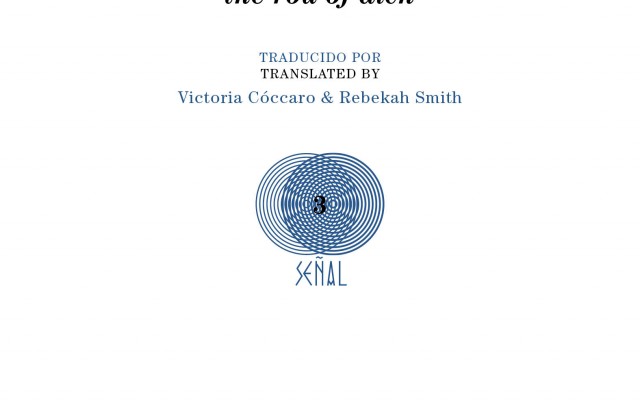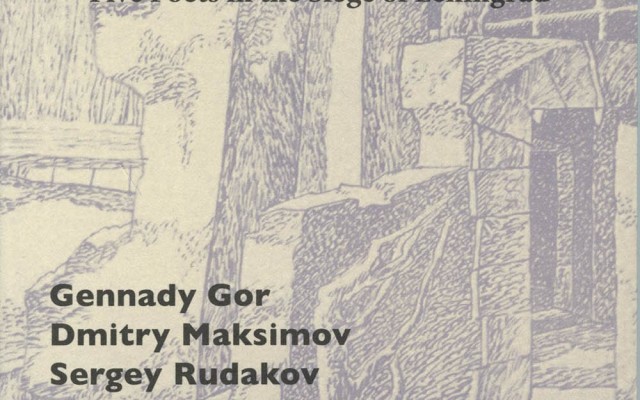Review: The Missing Word

The Missing Word
By Concita de Gregorio, translated from the Italian by Clarissa Botsford
Europa Editions, 131 pp., $15.99 (paper)
Review by Jacquelyn Bengfort
The Missing Word is a difficult novel to recommend, not because it isn’t beautifully rendered or important, but because it so ably captures the indelible pain of a real-life tragedy: the 2011 disappearance of six-year old twins Alessia and Livia Schepp, from the Swiss village where they lived. Their father, Mathias Schepp, failed to return the girls to their mother, Irina Lucidi, at the end of a weekend in late January of that year; four days later, he leapt to his death in front of a train in Italy. The girls were never seen again.
The book incorporates its making into the means of its telling, opening with the first of ten ‘Me About You’ chapters, in which the writer’s voice seems to break the fourth wall to speak in the first person and directly to the character of Irina. The novel arose, this chapter suggests, when Irina Lucidi approached De Gregorio, a journalist by trade, for help in setting down the story of her daughters. It is a story that resists ordering; the plot here is unusual, arranged into thirty-six short, formally diverse chapters which unfold in the fractured manner of aftermath. Eleven of them take the form of letters, some addressed to Irina’s intimates—a grandmother, a best friend, a brother—and others to the figures of authority who have, often, failed her: a marriage counselor who dismissed her husband’s controlling actions; a county clerk in Wisconsin who may hold the evidence concerning another missing child, Irina’s American-born, Italy-dwelling grandmother Mayme; the Swiss investigator who, in Irina’s estimation, badly botched the inquiry into the girls’ disappearance. Other chapters take the form of lists, or character sketches, or recounted dreams.
Each sort of chapter works on the tale like the various chisels and hammers of a sculptor, contributing in an individual way towards a unified effect. De Gregorio allows questions to rule; in the character chapters, we seem to be listening to half of a conversation, as Irina responds to the writer’s queries, with sentences that open with a “no” or a clarification, as in the chapter on Mathias: “What was Mathias like? Physically? He was handsome. Tall, athletic, blond. Slightly cross-eyed, but I can’t remember whether his eyes turned inward or outward.” Certainties, and uncertainties, of every degree haunt the telling.
All of these various ambiguities are heightened by the fact that the book is presented as fiction. The English-language edition is prominently labeled as a novel on the cover, and bears the usual legal boilerplate on the edition page. Certain facts here are just that—drawn from reality, verifiable—and others may be entirely De Gregorio’s invention. Did Irina Lucidi really go to De Gregorio with a request to set down this story? Is the story of Mayme, the grandmother whose suspected family abduction as an infant chimes with the story of Livia and Alessia, authorial fancy or confirmable matter? At a time when the zeitgeist treats terrible crimes as entertainment, and hordes of amateur sleuths try to track down capital-letter Truth in the coldest of cases, The Missing Word’s inconclusiveness feels honest. It gives the reader a gentle echo of the all-consuming inconclusiveness Irina lives with, always.
De Gregorio, and Irina, are intensely interested in the possibilities and limitations of narrative, and language is often on trial in The Missing Word, titled Mi sa che fuori è primavera in the original Italian edition (roughly, “I know that it is spring outside”). Irina herself is multilingual, born of a German mother and an Italian father, fluent in French and English, living in Spain and “trying to think in Spanish” at the time of the story’s telling. The penultimate chapter—the last of the book’s lists—addresses the gap alluded to in the English edition’s title: the lack in every one of Irina’s languages of a word to describe herself. She must turn to ancient and modern Greek, to Hebrew, to Arabic or Sanskrit for anything like a term for parents who lose children. “What are they called, how do you say it, who is someone whose child has died?” she demands to know. While we often rebel against labels, want to insist on our individuality, Irina longs for the comfort of a word that would place her great ordeal within the realm of acknowledged human experience. She may be, as the modern Greeks would have it, “burnt by Charos,” but she remains alive.
And it is life’s ongoingness, it seems, that first prompted Irina to approach the writer. Love has arrived; Irina has met someone, a gentle man named Luis who treats her with care. She is ready, not to move on, but to move forward; she tells the writer, “I want to put a period at the end. Mark the passage.” Luis has two children’s bedrooms in his home, for his grown children; he tells her, “But when the girls come back, L and F will share one room and the twins will share the other.”
Irina knows the girls will not come back, but she needs to keep a place ready for them. There is no end to a story like Irina’s; hope and sorrow are the twins she must carry when the girls’ fates cannot ever be known. In a letter to an Italian judge who agrees to review the case, Irina writes, “But you see, nothingness is not enough. Even if the probability [of their death] is ninety-nine percent. Even if we’re left with only a one-percent chance that my twins are somewhere in the world…It is that minuscule hypothetical probability that I’m asking you to help me to explore.”
The Missing Word, like the waiting room in Luis’s house, is a place for Irina’s girls, an edifice crafted from the careful attempt to apply language to the nearly unendurable absence, the lingering questions, the failures of investigation. A place for their every possibility to dwell.
Yes, it is a difficult book to put into people’s hands. And yet, after I read it, I set it down and retrieved my cell phone. I texted a friend—a mother, like Irina, like myself; a reporter, like De Gregorio.
I just finished this, I wrote, snapping a photo of its pale mauve cover. You’ve got to read it.
–
Jacquelyn Bengfort was born in North Dakota and holds an MFA from the Iowa Writers’ Workshop, an MPhil from the University of Oxford, where she was a Rhodes Scholar, and a B.S. from the U.S. Naval Academy. Her creative work has been supported by a Rona Jaffe Graduate Fellowship, three individual artist grants from the DC Commission on the Arts and Humanities, and a scholarship from the Martha’s Vineyard Institute of Creative Writing. Jacquelyn is the author of the Ghost City Press micro-chapbooks Navy News Service and Suitable for All Methods of Communication. She lives in Iowa City with her spouse, children, and a dog named after a prominent Canadian mystery writer, and teaches creative writing as an adjunct assistant professor at the University of Iowa.




